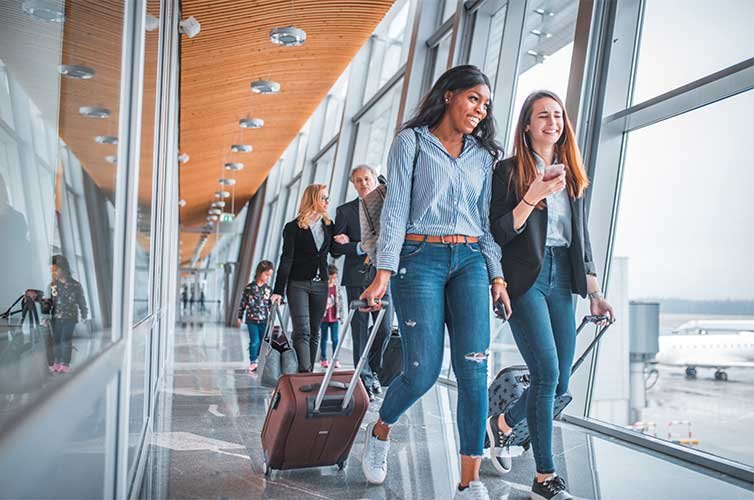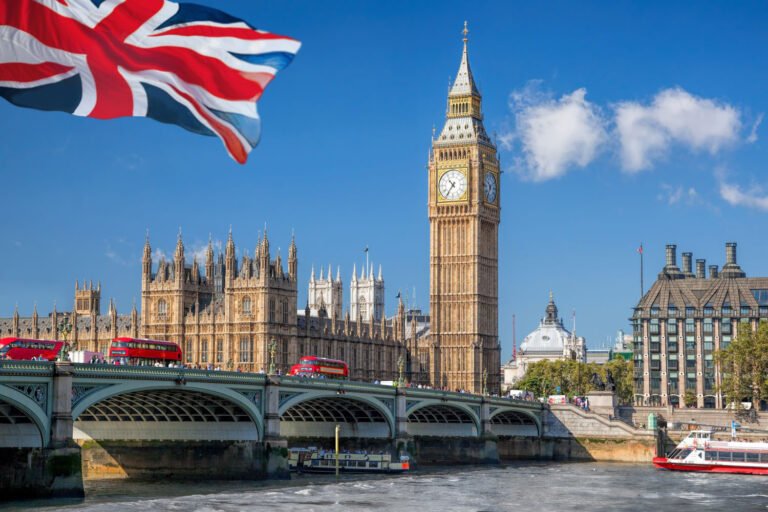As first-time international travellers, it can be both thrilling and nerve-wracking. No matter how seasoned a traveller you are within your home country, embarking on an overseas adventure opens up a whole new world of experiences and challenges. To help you navigate the complexities of international travel, we’ve compiled a list of ten essential tips that will transform your journey from daunting to delightful.
1. Prepare Your Travel Documents
As first-time international travellers, the cornerstone of a smooth international trip is having your travel documents in order. Start by applying for your passport well in advance. A common oversight is assuming that a passport with a 10-year validity doesn’t need attention. However, many countries require at least six months of validity remaining on your passport to grant entry. Additionally, ensure you have enough blank pages for visa stamps. The process of applying for and receiving a passport can take time, so it’s crucial to sort this out before booking your flight.
Next, consider whether you need a visa for your destination. A visa is a document issued by the destination country that grants you entry. Some countries allow visa-free entry or provide visas on arrival for US and UK passport holders, but rules vary widely. Thoroughly research the entry requirements for each country on your itinerary to avoid any unpleasant surprises at the airport.
2. Research Your Destination
Investing time in researching your destination can significantly enhance your travel experience. as first-time international travellers. While spontaneity has its charm, being informed about your destination’s cultural norms, laws, and practicalities is invaluable. For example, did you know chewing gum is illegal in Singapore, or that feeding pigeons is prohibited in Venice? These seemingly minor details can make a big difference in your trip.
Some essential questions to consider include:
- Can you drink the tap water?
- What is the local currency?
- What are the dominant religions and cultural norms regarding clothing?
- Are any vaccines required?
- How tourist-friendly is your destination?
- What languages are spoken, and how prevalent is English?
- Does the local cuisine align with your dietary needs?
- How do traffic laws differ from your home country?
3. Address Money Matters
Before you embark on your journey, notify your bank of your travel plans to avoid any issues with your cards being blocked due to suspicious activity. Depending on your destination, access to ATMs might be limited, and many places may not accept card payments. It’s wise to carry sufficient cash and consider using a money belt for added security. Additionally, familiarize yourself with the local currency and exchange rates to manage your budget effectively.
4. Compare Transportation & Accommodation Options
Transportation and accommodation are critical components of your trip. Websites like Rome2Rio and 12Go can help you explore various route options, allowing you to choose the quickest and most cost-effective modes of transport. Buses and subways are budget-friendly and offer great opportunities to engage with locals while ride-sharing apps like Uber, Grab, and Bolt provide convenient door-to-door service.
When it comes to accommodation, consider alternatives to traditional hotels such as hostels, guesthouses, and Airbnb. These options often provide more immersive experiences and opportunities to meet fellow travellers. If you plan to stay in one place for an extended period, look for places offering monthly discounts. Websites like Hostelz.com compare prices across multiple platforms, ensuring you get the best deal.
5. Book Everything in Advance
Booking your flights, accommodations, and transportation in advance can save you from last-minute stress and higher costs. As first time-international travellers, understand that while flexibility is great, the peace of mind that comes with having a well-planned itinerary allows you to focus on enjoying your trip rather than worrying about logistics. This is especially important for popular tourist destinations where accommodations can fill up quickly.
6. Avoid Travel Fatigue
Excitement often leads first-time travellers to overpack their itineraries, attempting to cover too many destinations in a short time. To truly enjoy your trip, pace yourself and avoid travel fatigue. Allow time to recover from jet lag by adjusting to the new time zone gradually. If you are prone to motion sickness, carry necessary medications, and take breaks to rest and rejuvenate.
Prioritize quality over quantity in your travel plans. It’s more rewarding to explore fewer places thoroughly than to rush through multiple locations without really experiencing them. This approach also reduces the stress of constant travel and allows for more meaningful interactions with the local culture.
7. Learn Basic Local Phrases
While English is widely spoken in many parts of the world, learning a few basic phrases in the local language can go a long way in enhancing your travel experience. Simple greetings, expressions of gratitude, and questions about directions or prices can help you connect with locals and navigate your surroundings more easily. Plus, making an effort to speak the local language is often appreciated and can lead to more authentic interactions.
8. Pack Smart and Light
Packing can make or break your travel experience. Aim to pack light and bring only essentials to avoid the hassle of lugging around heavy bags. Consider the climate and activities planned for your destination and pack accordingly. Investing in quality travel gear, such as a comfortable backpack and versatile clothing, can make a significant difference. Don’t forget to include a basic first aid kit, any necessary medications, and travel-sized toiletries.
9. Stay Connected
Staying connected while travelling internationally is crucial for safety and convenience. Research options for international phone plans or consider purchasing a local SIM card upon arrival. Having access to maps, translation apps, and communication with family and friends can help you navigate unfamiliar places and provide a safety net in case of emergencies.
10. Embrace the Experience
Lastly, embrace the experience with an open mind and a positive attitude. Travelling internationally is not just about visiting new places; it’s about immersing yourself in different cultures, trying new foods, and stepping out of your comfort zone. Be open to new experiences, and don’t be afraid to try something unfamiliar. Remember, the best travel stories often come from unexpected adventures.
By following these tips, you can overcome pre-departure jitters and travel abroad like a pro. Preparation and research are key to ensuring a smooth and enjoyable trip. So, pack your bags, prepare your documents, and get ready to embark on an unforgettable journey. Happy travels!



+ There are no comments
Add yours